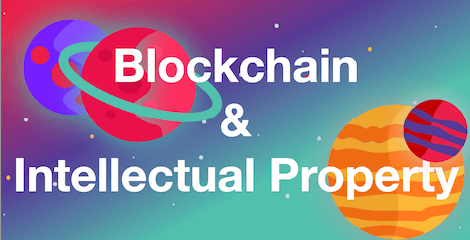Blockchain and Intellectual Property, A self-fulfilling prophecy?

Bockchain’s appeal centres around its decentralised, high-speed, low-cost and immutable nature. A block is a collection of timestamped, peer-reviewed data that is managed and verified by its participants rather than by a centralised authority. Because a block can only store a finite amount of data (blocks), new blocks need to be created, thus making a chain of blocks – hence the term ‘blockchain’. The original intention of this technology centred around a medium of exchange and recording transactions. These transactions are conducted and recorded occur in seconds, with low transaction fees. More recently however, the expectations of its scope have blown the door wide open to other disciplines, including intellectual property.
For some background and context, intellectual property can be subdivided into several categories, each with its own unique characteristics and protective measures. Copyrights are unregistrable rights in creative, original works, while trademarks are registered to protect a graphical representation. NFTs (non-fungible tokens) cannot be left out of the conversation of copyright law, but deserve its own article post. Patents record new and industrially applicable products or processes, while designs safeguard the functional or aesthetic appearance of articles. It is important to note that while copyright is protected across most countries owing to the Berne Convention, trademarks and patents are territorial, meaning that they are only protected within its country of registration (subject to overcoming other cumbersome legislative hurdles.)
How then, is this branch of law relevant when it comes to blockchain technology? The answer in a nutshell, mainly comes down to smart contracts, which affect their registration and protection.
Firstly, in terms of registration, copyright remains an unregistered form of intellectual property, thus exposing it to ownership disputes of who created the work first and subsequently afforded protection. Blockchain technology will solve this issue by uploading a time-stamped record of the original work, the creator’s details and when it was (first or otherwise) used. This decentralised ledger of information will also produce anti-counterfeiting results in that the entire supply chain can validate the genuineness of the product and distinguish it from fake copies. This can likewise apply to registrable intellectual property rights of trademarks, patents and designs. Furthermore, the administrative time and cost issues of these rights will be overcome because of the immediate nature of its entry into a blockchain-based registry. Of notable importance, it must be stated that territorial barriers surrounding trademark and patent protection could be eliminated. This means that intellectual property protection can be afforded to all subcategories across all countries since there is no geographically based central regulator or legal system for each respective country.
Secondly, smart contracts bring even more possibilities. Built on blockchain technology, these are legal contracts that are created and self-executed through predetermined conditions set out in code. These conditions range from simple ‘if this, then that’ terms to more complex functions entailing multiple obligations, weighting of party interests and even grey areas such as ‘reasonable’. Such contracts are tamper proof when compared to their physical counterparts since they are self-executing, meaning that they are fulfilled as soon as pre-set conditions are met. They also assist in the aforementioned registration of intellectual property rights, where parties themselves could directly register their right on the blockchain registry. Smart contracts also open the door to granting licenses and swift royalty payments.
This all being said, professional legal counsel is advised in the construction and interpretation of the legalese contained in these contracts. The immutable nature of its records, however, will make it easy for parties to locate and use that data as evidence if disputes or litigation ever ensues. A globally accessible record of contracts on the blockchain’s public ledger has the potential to bring international harmony to the field of intellectual property law and increase cohesion among participants. An immutable avenue for recording legal agreements demonstrates utility which can be harnessed by all spheres of the legal sector.
The benefits of a blockchain-based intellectual property system are clear, where increased mainstream adoption and regulatory oversight could see this expectation actually realised. Fortunately, the backbone of blockchain-related intellectual property (smart contracts) is broadly represented in the EC10 bundle, ranging from the well-known Ethereum, Cardano, Polkadot to the upcoming Solana blockchain. It is uncertain which of these protocols will come out as leader of the pack, but what is certain is that one of them will be represented in the EC10 bundle as this industry continues to gain traction.
Related posts
Browse tags
- All
- Easy Crypto (19)
- cryptocurrency (9)
- EC10 (4)
- Market News & Events (3)
- EC10 Bundle (2)
- Education (2)
- Volatility (2)
- BOME (1)
- BONK (1)
- BTC (1)
- Blockchain (1)
- Crypto Jargon (1)
- DOGE (1)
- Ethereum (1)
- FLOKI (1)
- How to fund my account (1)
- PEPE (1)
- SARS (1)
- SHIB (1)
- Solana (1)
- Terra (1)
- Tokenisation (1)
- ai (1)
- tax (1) View All View Less
